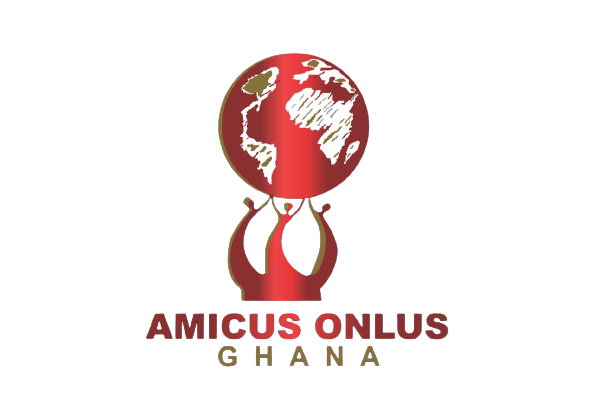Intro and Background
After nearly two years of battling the Covid-19 pandemic, 2022 started on a hopeful note for
many Ghanaians. However, these hopes were quickly quashed when it became clear that
the Government of Ghana had run out of money due to heavy borrowing, low revenue from
taxes, and high commodity prices on the international markets due to the Russian-Ukrainian
conflict. Initially, the government tried to increase the tax burden by introducing new levies
such as the e-levy on mobile money transactions. This form of payment is mostly used by
poorer people who have little access to the formal banking system. The public reacted
negatively to these measures. Meanwhile, inflation rose to the highest levels in the past 30
years, touching 30-40% from one month to the other. The Ghanaian cedi also depreciated
by as much as 50% within the year. The Ghanaian cedi has been described as one of the
worst-performing currencies in the world in 2022. There has been general unrest and
discontent in the country as people saw themselves getting poorer due to inflation. Salaried
workers whose wages were only increased by 4% when inflation was running at 40%
initiated strikes, some of which are still ongoing at the time of writing this report.
The Government finally resorted to negotiating with International Monetary Fund (IMF) for
a 3-billion-dollar loan. These negotiations are still going on. However, the IMF is going to
demand more sacrifices from the citizens of the country which include freezing new
government jobs and cutting back on government spending including health and education,
which will have further grave consequences in 2023. In December 2022, Ghana defaulted on
payments to foreign government bondholders after already imposing a unilateral ‘haircut’
on the yields of domestic bondholders. Without the IMF bailout, Ghana will officially be a
bankrupt country.
Within this context, Amicus has continued to operate to maintain the ongoing projects and
to plan for greater future financial stability. In the next paragraphs, we offer a synopsis of
the activities of the year 2022.
Baobab Medical Centre
The Baobab Medical Centre (BMC) has continued to operate amidst this climate of
economic uncertainty and nationwide increased poverty. The operations of the clinic have
been constrained by three principal factors. First, delayed government National Health
Insurance reimbursements. This has led to difficulties in procuring all the needed drugs. The
second constraining factor that almost all healthcare providers have noticed is that patients
are choosing to self-medicate, by buying over-the-counter drugs in local pharmacies rather
than going to clinics and hospitals where there aren’t enough drugs available under the
National Health Insurance Scheme. Thirdly, the BMC is now no longer the only healthcare
provider in Biriwa since the government opened the new polyclinic.
Notwithstanding these challenges, the BMC in 2022, has continued to deliver vital
healthcare in the following areas: general out-patient consultation, fully equipped
laboratory services, dispensary, antenatal and neonatal care, reproductive health, and
hypertensive & diabetic clinics. We were also able to add new services to our healthcare
offer: an ultrasound machine (partially paid for by donations from the US students), eye
clinic services, and ear-nose-throat services. Another novelty was the introduction of a
digitalized system for keeping records and managing the services at the BMC.
The BMC also went through the application process and obtained an upgrade from being a
health centre to a physician-operated Clinic from the Government’s Health Approval
authority. We are currently awaiting the approval of the National Health Insurance
Authority to raise our level of reimbursement in proportion to this new status.
In terms of numbers, OPD patrons covered by Insurance increased to 81% in 2022 compared
to 78.42% in 2021. The patronage from non-insured clients decreased from 21.58% in 2021
to 19% in 2022. Average Daily Attendance remained stable from Sixteen (16) in 2021 to
Fifteen (15) in 2022. We recorded an 8% increase in children fully immunized in 2022
compared to 2021 which recorded 96 and 82 respectively. Average daily births remained
stable decreasing from 0.7 in 2021 to 0. 6 in 2022. In line with other healthcare providers,
ANC attendance fell from 1548 in 2021 to 1268 in 2022 with a decrease of 10%. Total
deliveries decreased from 225 to 208 in the year under review.
The main conditions treated at the clinic were malaria, hypertension, anemia, septicemia,
helminthiasis, enteritis, Musculoskeletal pain, bronchitis, dermatitis, and gastritis.
Outreach and community health programmes have also continued, and we have invested in
the maintenance of the mobile clinic truck
Ultrasound Machine
Delivery Room recorded 208 deliveries in 2022
Support to Saint Joseph’s Academy
Thanks to Laura Saporiti and the Scuola di Gerbone, Amicus was able to support the activities
of St. Joseph’s Catholic School in Apam.
Re-integration of Migrants from Italy
Amicus has continued to collaborate with CISP Italy on the project of Rientro Volontario to
return and reintegrate Ghanaian citizens who have entered Italy illegally. This year we
assisted 20 migrants who chose to return to Ghana. Ten of these have initiated or
completed projects that will enable them to earn a stable living income whilst we are still
doing diligence checks on the other 10.
Below are images of some of the returnees at work on the projects they have initiated in
Ghana.
Dressmaking and Trading
Taxi Service and Farming
Training in sewing and tailoring
After a successful tailoring and sewing project in Mumford, Amicus decided that the project
should be moved to a different location to enable other people in a different region/town to
benefit. Amicus chose Tamale, the capital town of the Northern Region for the tailoring and
sewing project in the year 2023. The Northern Region is one of the poorest in the country.
We are in contact with a trainer who is a qualified clothing and textile tutor. The course is
designed to last for a period of one (1) year and at end of the course the beneficiaries will sit
for the accredited examination of the National Association of Tailors and Dressmakers for
certification. Currently, there are twenty four (24) prospective beneficiaries who have
expressed interest in the training in 2023.
Images from sewing project last cohort
Biriwa Land Project
Together with Claudio Tezza, Amicus NGO has elaborated a project to sell a portion of the
land at Biriwa in order to generate funds to develop new projects and ensure future
sustainability of the organization. This project is ongoing and will mature in 2023.
Conclusion
We would like to thank all the persons who have supported Amicus over these years. Your
generosity has made a huge difference in the lives of many people. Thanks.


